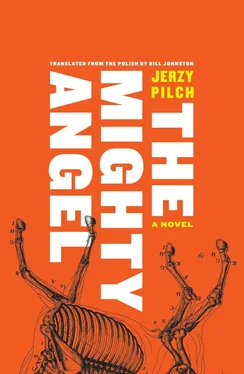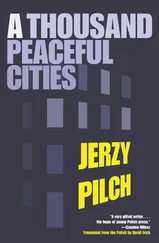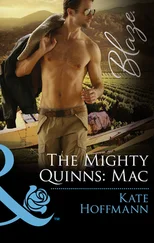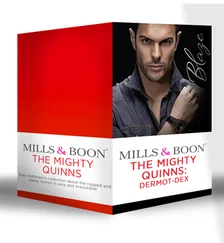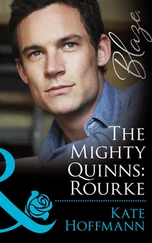JOANNA CATASTROPHE WAS beautiful, wise, and tall. Nothing but pluses. Besides — something that for me is of first-rate importance — she wore first-rate clothes and used first-rate cosmetics. But Joanna Catastrophe would come into my apartment and plop down her coat, plop down her pumps, and plop down her handbag. After fifteen minutes of Joanna Catastrophe on my territory (the territory she herself inhabited — her girlhood room in a suburban dwelling — is beyond description), my territory would start to resemble. . My first instinct was to write: the apocalypse, but no. First of all, to my ear that would sound too comical: the apocalypse after the arrival of the catastrophe; second, it would not be the truth, since it was not the beginning of an apocalypse but the beginning of a carnival, which incidentally was a hundred times worse than an apocalypse — after an apocalypse there would be little left to tidy up, whereas after Joanna Catastrophe I and the objects that belonged to me took the longest time to regain our composure.
Plop went the muffler, plop went the headscarf, plop went the coffee cup, plop went the blouse, plop went the newspaper, plop went the book, plop went the skirt. “Joanna,” I explained patiently, “freedom isn’t about leaving your best moccasins in the middle of the room.”
Had this disorder simply been a token of voracious sensuality, it wouldn’t have mattered so much. Our bodies fling themselves on one another hungrily, tear off their clothing, and, like in a French or American romantic movie, shoes, dress, panty hose, shirt, black jeans, frilly undies, and boxer shorts form a path across the thick emerald-green carpet to the Hollwoodesque bed. Joanna, however, didn’t create chaos around herself only on the way to bed. On the way to bed, as it happened, she (we) created the least chaos; our sensuality was indeed voracious, but we were both familiar with the principles of the art and in the interests of intensifying its sensuality we moderated its voracity (principle number one: never hurry). In any case, for the whole of the day, that is to say the whole of eternity, Joanna’s best moccasins would lie in the middle of the room. Along with a buckle, an ashtray, an antique milk bottle, a pen, a bottle of Palmolive shampoo, yesterday’s Gazeta Wyborcza , an empty Milka chocolate bar wrapper, an empty packet of potato chips, empty packets of everything, and every other object imaginable.
Oh, Joanna Catastrophe was far from stupid, and she was well aware that freedom was not a matter of leaving one’s best moccasins in the middle of the room. With Joanna one could have long and fascinating conversations about the concept of freedom, and about other concepts too. Joanna was studying economics and fine arts, and she came from a very good home. Her father was the principal of an elite grammar school; he possessed a degree in history and, as it transpired after the fall of communism, a number of apartment buildings and acreages of land. Her mother was a dentist with a long-standing practice in the heart of the old town, a sophisticated, well-groomed lady who was oppressively enticing in her over-ripeness.
I did not have a clean conscience during my one and only Sunday lunch at the suburban residence of the Catastrophe family. What am I saying: it was not that I did not have a clean conscience, it was that I had a thoroughly unclean conscience; I was unclean as a hog, and I was hungry as a wolf. I wolfed down my food and stared wolfishly at my future never-to-be mother-in-law. She was clad in a flowing yellow gown, and yellow gowns always bring me to my knees. I ate meatballs in broth, veal tongue in jelly, veal roast game style, fruit salad, and ice cream; I ate and at the same time restrained the debauched song that was springing up within me. At the time I was in excellent form. I wasn’t drinking at all; I drank nothing but non-carbonated mineral water (under communism there was no non-carbonated mineral water), I didn’t drink so much as a drop of wine over lunch, I didn’t drink so much as a thimbleful of liqueur over dessert, I didn’t even wet my lips on the brandy served with the coffee, and later in the afternoon, it goes without saying, I also did not drink the glass of Jack Daniel’s offered me by the man of the house. I didn’t drink at all and not drinking did not bother me in the slightest. I was on top form; I listened, I spoke, and I held in check the detailed story-line of the pornographic tale that was forming in my head about enjoying both mother and daughter at the same time — I didn’t hold it so firmly in check that it would be completely suppressed, only so it would not dominate and merely smoldered in the background. I took an active part in the conversation and listened with genuine curiosity to the hosts’ divagations on the subject of their literary tastes, which as it happens were rather broad. For Mr. Catastrophe it was German-language literature, with a special interest in Austrian writers of the twentieth century; Mrs. Catastrophe liked Latin American literature, with no particular special interest; with Joanna it was Russian and American literature, with a special interest in Vladimir Nabokov. I listened, I spoke, and on the subject of Nabokov I delivered the daring (given my situation) opinion that he was a writer whose dark, infernal inquisitiveness and precise mastery of icy form predestined him perfectly to write a novel that was a study in addiction. “Alas,” I added with flippant erudition, “the rumors of the author’s profound alcoholism proved untrue.” I listened, I spoke, I confessed my own literary tastes, and then at dusk I found myself in Joanna’s girlhood room.
“Look how nicely I tidied up,” whispered Joanna. “I did it for you, I cleaned it for you.”
Indeed, the room was marked by a disquieting symmetry which was at odds not only with Joanna’s nature but with human nature in general; one could see at first glance that what had been introduced here was a superficial, Potemkinesque monument to perfect order that could come crashing down at any moment.
“Joanna, I love you in chaos, I love you among all your scattered things.”
But Joanna, evidently given wings by the newly discovered art of the harmonious arrangement of objects, paid no attention, perhaps failing to comprehend the poetic depths of my declaration.
“Even my keys,” she whispered with childlike enthusiasm, “now I even put my keys where they’re supposed to be. And this morning, can you imagine, I couldn’t find them, I couldn’t find my keys, because I’d forgotten I put them where they’re supposed to be.”
I could feel my throat stiffening with emotion; I was moved by the sudden certainty that I would spend the rest of my life with Joanna Catastrophe.
“I love you,” I repeated, “I love you regardless of where you put your keys.”
“Come with me,” said Joanna, and she took me by the hand, and led me up the stairs to the upper floor of the residence, and brought me down a long hallway, and at the end of the hallway she opened a door. I beheld an as yet unfurnished room with white walls; it was well lit and cosy. Outside the window was a view that would have been the dream of any scribbler. Down below was the cooling city; over it, masses of hot air were gathering, while the China grass of darkness was taking over the alleyways and the first lights were coming on in the distant windows.
“You’ll have your own armchair here, your bookcases, your books, and your desk, you’ll be able to write here,” said Joanna, while I realized that the great irrevocable change I had waited for for so many years and whose arrival after all those years I had begun to doubt — that this change had finally come after all. I realized that my life would change and improve, and gently, as if I were embracing a soul that was giving me new life, gently I took Joanna in my arms.
Читать дальше
